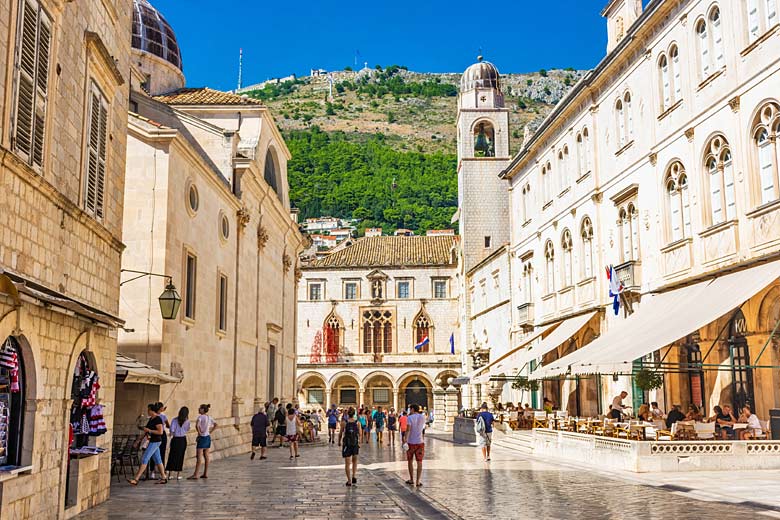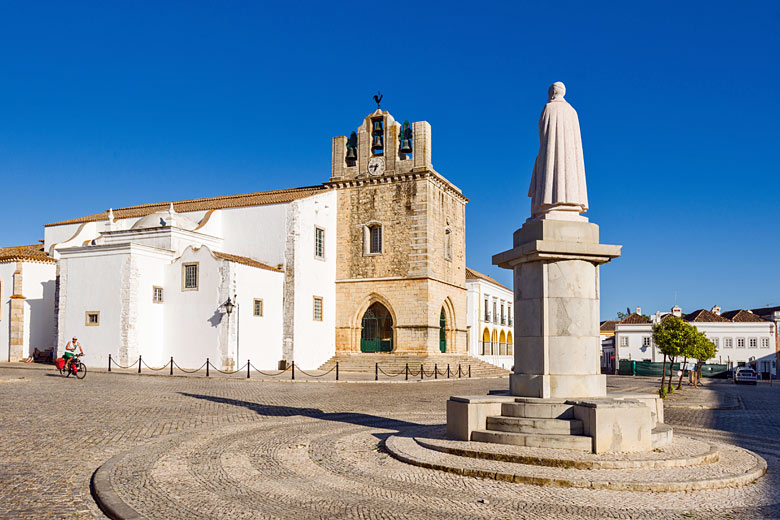Laid-back Majorca: where to go for a peaceful escape
In the rugged, mountainous interior of Majorca*, caramel-toned stone houses cling to hillsides and rest in valleys.
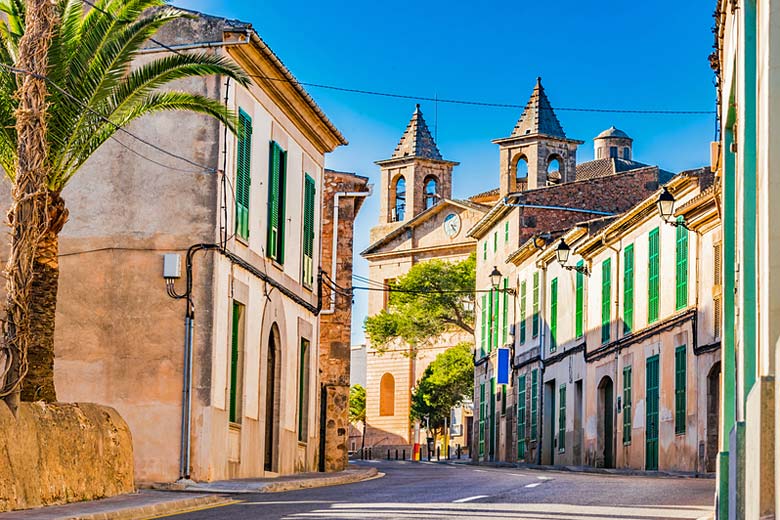
While crowds flock to the seaside resorts on Majorca's coast, if it's a laid-back break you're after, swap the hum of jet skis for the soft clang of goat bells and thumping bass for the low chatter of Mallorquines sipping coffee in leafy squares.
Majorca has long been associated with beachy breaks and resort hotels but through the Tramuntana Mountains and in the Muntanyes d'Artà, there's a string of golden stone towns where tiny galleries, indie boutiques, bakeries and pavement bars fill the centre and hiking and biking routes lead out into the untamed landscape.
Away (but not too far away) from the lounger-lined beaches, discover a slice of old-world Majorca where the pace is slow and nature is on the doorstep.
Getting to Majorca: browse current deals on breaks to this Balearic island* with Jet2holidays.
Pollensa
In the shadow of the Tramuntana Mountains, Pollensa's old town is a warren of narrow streets opening up to plant-filled plazas.
Old stone buildings house traditional restaurants where Tramuntana lamb and fare from the mountains have fed this community for centuries, but you'll also find a few trendy tapas joints and mixology-led cocktail bars, too.
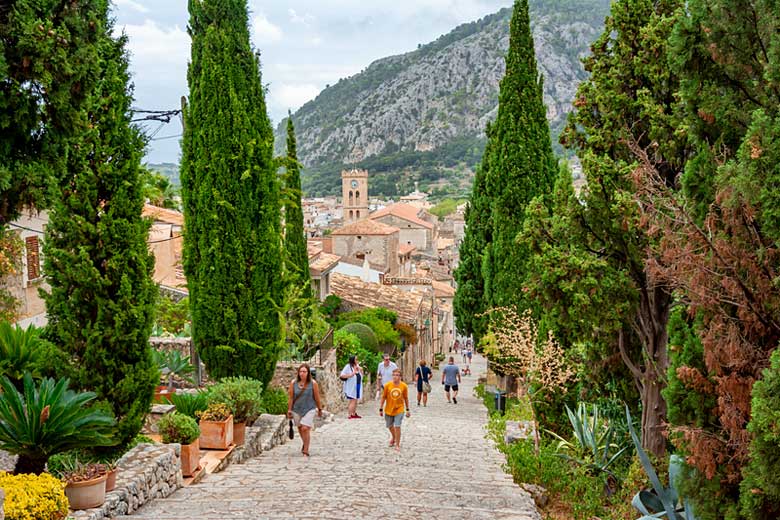
The scenery around Pollensa* is a hiker and bikers' paradise where shaded walking trails lead through ancient woodland and up to the peaks of mountains.
The GR221 long-distance hiking route meanders through the centre of town while the twisting road route to Sa Calobra is popular with professional cyclists who come here for their winter training sessions.
If you want to stretch your legs a little closer to town, the cypress-lined 365 steps to Calvario Chapel runs from one of the pretty, café-filled squares or you can make the gentle uphill walk to the summit of Puig de Maria just outside of town.
There's a monastery at the top and a panorama of the countryside, sea and Puerto Pollensa*, a seaside town just over seven kilometres away.
Alcudia
While the sweep of soft sand and crystal-clear water of Puerto de Alcudia* draws the crowds, there's a charming old town of the same name just a 20-minute walk inland.
It's fortified like a castle to protect from pirate attacks in the 16th and 17th centuries and you can stroll atop the ancient walls to look out over the surrounding countryside.
Just outside the ramparts, the remains of a Roman amphitheatre make for a morning's curious exploration and, in the centre, a century-old bullring can be visited.
These days, bullfighting has ceased, but there are mock fights without the controversy or bloodshed a couple of times a year.
While the resort town of Puerto de Alcudia tends to shut down for the low season, there's a little more local life in Alcudia Old Town so restaurants, wine bars and cute, independent shops all stay open throughout the year.
Sóller
The central square in Sóller is as pretty as a postcard, especially when the chocolate-box train trundles past the gothic church, making its slow way from Palma* to Puerto de Sóller*. Ensconced in a valley, mountains rise around the ramshackle streets.
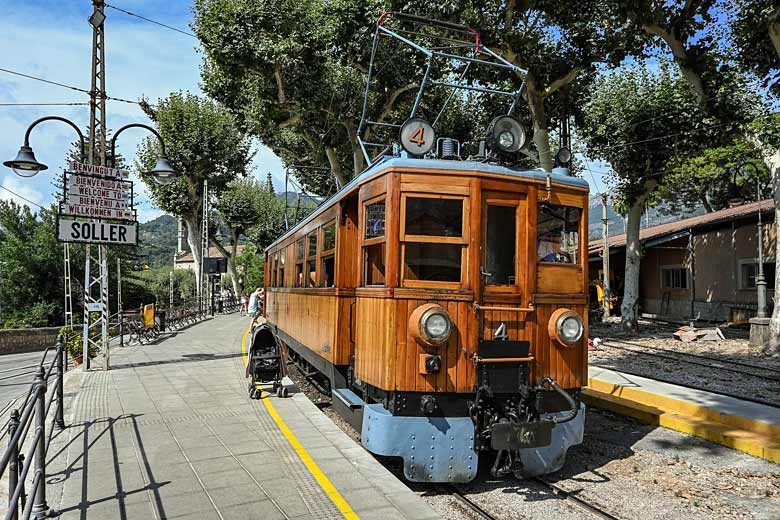
Family-run restaurants that have stood for centuries sit alongside cocktail bars and coffee shops that wouldn't feel out of place in Shoreditch. The main square is the perfect spot for an evening spritz or beer, snacking on salty padron peppers as the sun casts golden light against the rocky mountains.
There are plenty of bike rental shops and cycling workshops for those hitting the lung-busting climbs out of town while the long-distance GR221 drystone walking route passes through Sóller for hikers.
Meanwhile, catching the old wooden tram to Puerto de Sóller sees you at the beach and seafront in 15 minutes .
Deia
Catching the view of the azure sea from the top of Deia, it's easy to see why this small old town has drawn artists, writers and musicians over the centuries.
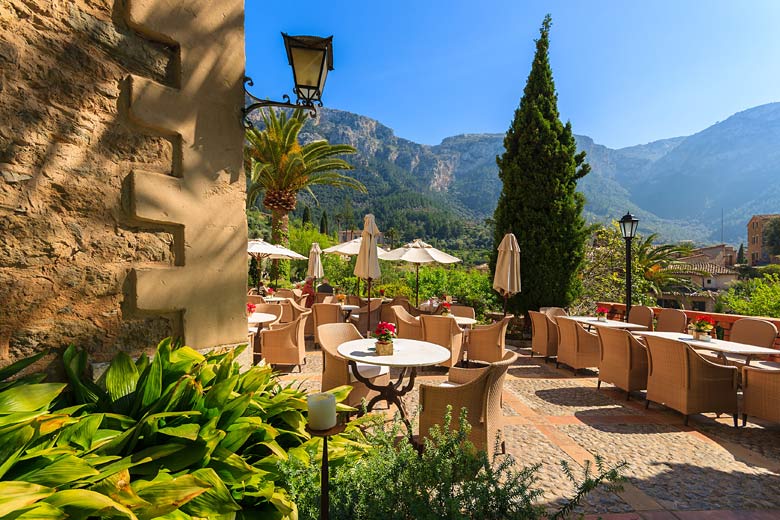
Soft-brown houses with colourful shutters are spread between the verdant greenery of the hilltop and, while the centre is only one or two streets big, there are cafés serving vegan food and hand-roasted coffee, a handful of traditional restaurants and a popular ice cream shop alongside independent galleries.
Life here is slow and quiet with little interrupting the soothing trickle of water from the Arab irrigation system still in operation. Apart from leg-stretching walks in the surrounding Tramuntana Mountains, it's a pleasant stroll to the secluded rocky cove of Cala Deia where the sea is calm enough to swim and impossibly clear.
Valldemossa
Often topping 'prettiest villages in Majorca' lists, most people stop in Valldemossa for an afternoon to visit the stunning 13th-century monastery where Chopin and George Sand once stayed.
It's worth lingering longer to really appreciate the slow, quiet life in Majorca though. Sand-coloured houses with wooden green shutters contrast with the surrounding ancient olive groves and oak forests.
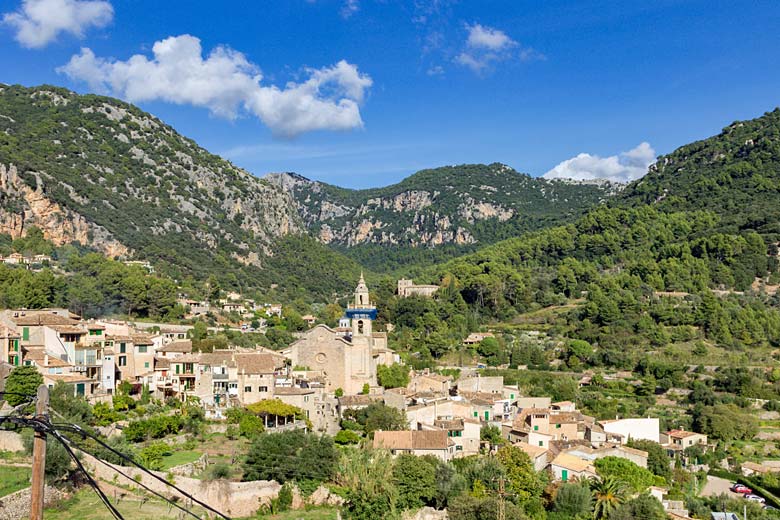
Taking in the stone-terraced fields tumbling from the town's perimeter, it feels as though nothing's changed here for hundreds of years.
You can get a taste of the area's ancient agricultural scene at the nearby estate of Son Moragues with an olive oil sampling experience.
Valldemossa is small, with a population of just around 2,000 people, but there's a selection of boutique shops, cafés, restaurants and art galleries to keep you pleasantly and slowly busy.
Artà
It's still possible to experience Majorca practically untouched by tourism in the old town of Artà in the northeast of the island.
Those staying in the nearby coastal resorts of Cala Ratjada and Cala Mesquida may drift into Artà on a Tuesday when the weekly market comes to town, selling the region's famous pottery and basket weaving.
The beautiful hilltop walled fortress of Santuari de Sant Salvador sits outside of the town and the walk up here rewards with panoramic views.
But perhaps the most popular attraction is the nearby Caves d'Artà, a sprawling network of underground caverns whose other-worldly stalagmite and stalactite formations were said to inspire Jules Verne's Journey to the Centre of the Earth.
Climate in Majorca
| Jan | Feb | Mar | Apr | May | Jun | Jul | Aug | Sep | Oct | Nov | Dec | |
|---|---|---|---|---|---|---|---|---|---|---|---|---|
| Maximum daytime temperature °F | ||||||||||||
| Hours of sunshine (daily) | ||||||||||||
| Days with some rainfall | ||||||||||||
| Sea temperature °F |
The above guide shows the climate in Palma. Find out more about conditions across the island in our complete guide to the climate in Majorca.
Ready to explore Majorca? Browse the latest offers on escapes all year round with Jet2holidays.
More about Majorca
- Overview
- Best time to visit
- Weather by month
- 5-day weather forecast
- Destinations
- Travel advice
- Deals & discounts
Majorca by month
Jan Feb Mar Apr May Jun Jul Aug Sep Oct Nov Dec
Explore holidays in the sun for less
- Beach holidays
- Family holidays
- City breaks
- Summer holidays
- Winter sun holidays
- Holiday offers
- Top travel brands
- Airlines & flights
- Discount hotels
- Airport parking deals
- TUI
- Jet2holidays
- easyJet holidays
- Love Holidays
- British Airways
Airport parking
- Manchester Airport
- Stansted Airport
- Bristol Airport
- Luton Airport
- Birmingham Airport
- Edinburgh Airport
- Gatwick Airport
- Glasgow Airport
- Newcastle Airport
Airport lounges
- Manchester Airport
- Birmingham Airport
- Bristol Airport
- Edinburgh Airport
- Glasgow Airport
- Heathrow Airport
- Newcastle Airport
- Stansted Airport
- Gatwick Airport
Be inspired
Get your weekly fix of holiday inspiration from some of the world's best travel writers plus save on your next trip with the latest exclusive offers
We promise not to share your details


































